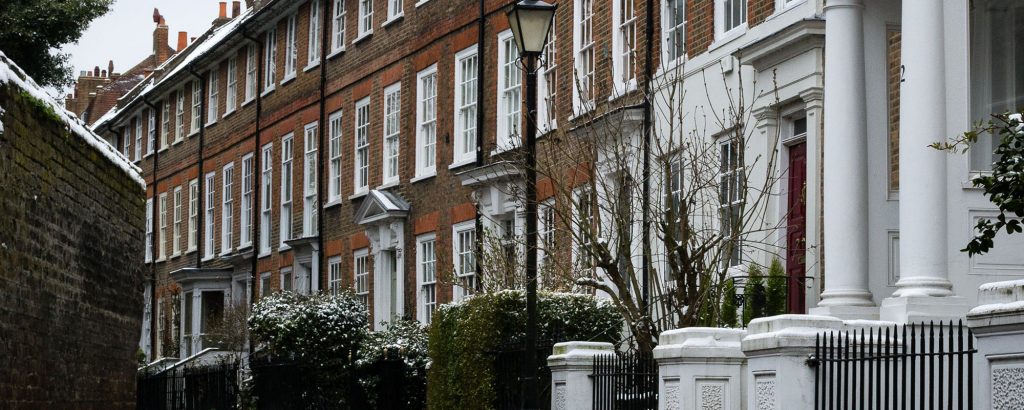When you have a variable rate mortgage, your interest rate fluctuates throughout the term. As a result, your mortgage payments increase or decrease accordingly. This means that you benefit from lower monthly payments when the interest rate drops, allowing you to save some money. But it also means that you have to pay more when the interest rate goes up. Some lenders offer capped and collar rates on their variable rate mortgages. So what exactly are these and how can they affect your mortgage payments?
What is a capped rate?
A mortgage with a cap is when an upper limit, or ceiling, has been set for the interest rate. This means that even if rates continue to rise, the interest rate you pay won’t go higher than that capped rate.
For example, if you have a capped rate tracker mortgage for your home in Bexley, your interest rate will follow an external rate. This is more than likely going to be the Bank of England base rate. In times of economic uncertainty, the base rate may continue to rise. As a result, your interest rate will increase in line with the base rate hikes. However, if the base rate goes higher than the cap set for your mortgage, your interest rate won’t increase with it as it cannot go higher than the cap.
Likewise, you may be paying your lender’s standard variable rate (SVR) for your Pimlico property’s capped rate mortgage. SVRs tend to be higher than other variable rates. Lenders can change their SVRs by any amount and at any time without giving prior notice. This means that your mortgage payments could increase significantly without any warning. With a capped rate, however, you can rest assured that your interest rate won’t go any higher. This is the case even if the lender continues to increase their SVR.
A capped rate, therefore, gives you peace of mind that your monthly mortgage payments will never exceed a certain amount. It reduces your risk in times of economic uncertainty and ensures that you can maintain your affordability for your mortgage. As you benefit from the security provided by having a capped rate, you usually have to pay a higher interest rate for this type of mortgage than for other variable rate mortgages.
What is a collar rate?
A collar rate, also known as a floor rate, is sometimes set by lenders as a minimum rate below which your interest rate cannot drop. This protects the lender when there’s a buoyant economy and rates are continually decreasing. It reduces their risk of losing too much revenue as your interest rate won’t be able to fall lower than the collar.
For example, if you have a tracker mortgage for your home in Bexleyheath, you can benefit from lower interest rates and decreased mortgage payments each time the base rate is reduced. However, even if the base rate continues to drop below the collar rate, your interest rate won’t. This means that your mortgage payments can never go lower than a certain amount. This minimises the amount you can save in times of economic buoyancy.
Can you get a capped and collar rate mortgage?
Yes, some mortgage products are available with both capped and collar rates. A cap gives you security and peace of mind that your mortgage payments will never go higher than a certain amount. This helps when budgeting for your monthly payments. It also reduces any affordability concerns that may be faced with other variable rate mortgages.
With a collar, you know that your monthly payments will never go lower than a certain amount. This restricts how much you could potentially save should rates in general continue to decrease. However, by choosing a mortgage that has both a capped and collar rate, you’ll usually benefit from a better interest rate than if you opt for a capped rate only. This is because the collar rate lowers the lender’s risk.
Is a mortgage with a capped and/or collar rate right for you?
Whether or not you should opt for a mortgage with a capped and/or collar rate depends on your preferences and situation. If you’re worried about affordability issues and prefer to budget in case of increasing rates, then a capped rate is a good idea. On the other hand, interest rates may never reach the cap. In this case, you’ll end up paying a higher interest rate for the security without needing to. You may also be able to find a fixed-rate deal that has a lower interest rate than a deal with a capped rate.
Whilst a collar rate prevents your interest rate from going below that level, impacting the savings you can make if rates are low and continue to decrease, you may benefit from a better interest rate than other variable rate deals. This is because the lender’s level of risk is reduced.
Discuss capped and collar rate mortgages with an expert
When you prefer the flexibility offered by a variable interest rate over a fixed rate but want more certainty on what you’ll pay, a mortgage with capped and collar rates is worth considering. Our mortgage brokers – located throughout Kent, London and Edinburgh – can discuss these rates in more detail with you and provide comparisons with other options.
Just give us a call on 01322 907 000 for more information. Our expert brokers can advise you on the pros and cons of capped and collar rates in relation to your financial situation. This will ensure that you make the right decision for your mortgage needs and preferences.

